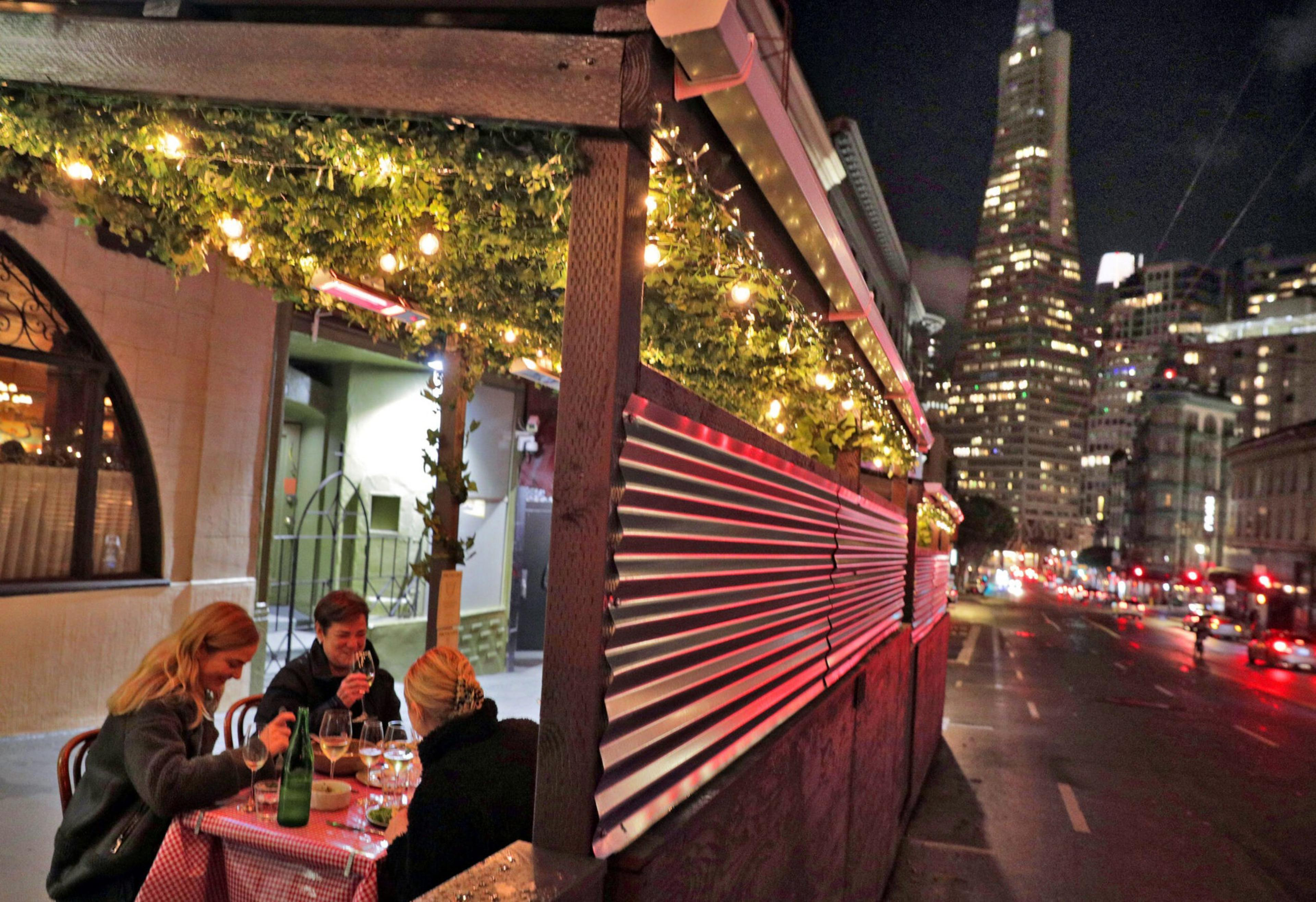A new ordinance (opens in new tab) approved Monday by the Board of Supervisors Land-Use and Transportation Committee could give parklet owners an additional reprieve from city regulation. The measure—introduced by District 3 Supervisor Aaron Peskin—allows business owners more time to bring their parklets up to code, without fear of incurring fines for violating evolving city guidelines. The ordinance still needs to be passed by the full board later this month before it goes into effect.
Public debate around regulating parklets has largely been on pause as San Francisco officials and industry groups worked to create a clearer framework for what has become a pandemic lifeline for restaurants and bars. The new rules are meant to give business owners more breathing room in the transition to a permanent parklet program, while addressing public access concerns that emerged when the temporary Shared Spaces program was introduced in June 2020.
That snap measure was followed by legislation to establish a permanent version of the program, which would keep some streamlined permitting, while balancing transportation and accessibility needs. However, the initial timeline posed by the legislation led to complaints from business owners who said they started to receive notices of violations and potential fines even as the pandemic continued to interfere with their daily operations.
What are the new rules supposed to address?
The new measure is meant to give restaurant owners more time to adjust to the regulations around parklet design and permitting. This new ordinance protects business owners from getting fined for their parklet prior to April 1, 2023. It also urges departments to review permits for parklets within 30 days “to the maximum extent feasible” and calls for the wind down of the temporary parklet program by March 31, 2023, which also is the date by which business owners will need to convert temporary permits to the permanent Shared Spaces program. Currently, all parklets are operating under the temporary pandemic-era permits, Robin Abad, the director of the Shared Spaces program, said at the committee meeting. He added that permit applications for post-pandemic parklets will be due at least 90 days prior to the sunset of the pandemic parklet program putting the new tentative deadline at Dec. 31, 2022.
Who could still be fined under the new rules?
The ordinance says that fines could still be levied if parklets impede the ability for people with disabilities or emergency responders to access public space or if they impede roadway visibility in a number of high-injury intersections (opens in new tab). The law also says property owners can be fined if they fail to remove an abandoned structure. A number of extreme cases where the structures took up much larger spaces or led to major safety concerns have already been addressed in recent months, according to Laurie Thomas, the executive director of the Golden Gate Restaurant Association.
What are the design guidelines parklets will need to adhere to?
The city’s design and permitting rules for its Shared Spaces can be found in this manual (opens in new tab). Variations exist between the types of Shared Spaces, which include structures in sidewalk areas, structures that take up parking lanes and those on closed roadways. Parklets in the parking lane, for example, need to have a 3-feet buffer at each end of the structure, eight feet of clearance from an intersection and a minimum 3-foot emergency access gap for every 20 feet of structure, in addition to other guidelines. The permanent rules also require commercial parklets to allow public access during specified hours of operation.
What else are industry groups pushing for?
Thomas of the Golden Gate Restaurant Association said she is seeking additional assistance to help business owners forced to modify their parklets to adhere to city codes. Thomas said she is in conversations to open up more grant funding to help business owners with the planning, permitting and construction process. The city offers grants (opens in new tab) up to $2,500 to bring parklets into compliance, with the deadline for applications extended to April 30.
